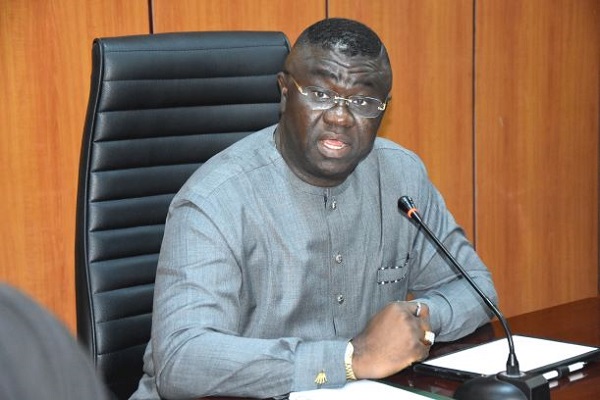News
FG tasks State Governors on poverty reduction

Federal Government has again challenged State Governments on the need to address the level of poverty among rural dwellers to make life more meaningful for rural communities.
Minister of State for Budget and National Planning, Clement Agba, made this position known while addressing State House correspondents at the end of the virtual meeting of the Federal Executive Council
According to him, state governments must brace up and do more to alleviate poverty in the rural communities across the country.
“In the course of working on the national development plan, we looked at previous plans and said why they didn’t do as much as was expected.
“We also looked at the issues of the National Social Investment Programme.
“At the federal level, the government is putting out so much money but not seeing so much reflection, in terms of money that has been put into alleviating poverty, which is one of the reasons the government also put in place the national poverty reduction with growth strategy.
“But if the federal government puts the entire income that it earns into all of this without some form of complementarity from the State governments in playing their part. It will seem as if we are throwing money in the pond.
“The governors are basically only functioning in their state capitals, and democracy that we preach about is delivering the greatest goods to the greatest number of people.
“And from our demographic, it shows that the greatest numbers of our people live in rural areas, but the governors are not working in the rural areas.
“Right now 70 per cent of our people live in rural areas. They produce 90 per cent of what we eat. And unfortunately, 60 per cent of what they produce is lost due to post harvest loss and it does not get to the market,” he said.
According to the minister, a recent survey has shown that the country’s poverty is mostly found in the rural areas, adding that Sokoto State has the highest poverty rate in Nigeria.
“In the past, we’ve always looked at monetary poverty. But poverty like we know has different pieces, different intensity and different causes.
“And it is for this reason; I went around the 109 senatorial districts in Nigeria, to carry out those surveys and to be able to say specifically, where this hardship is.
“The result clearly shows that 72 per cent of poverty is in the rural areas. It also showed clearly that Sokoto state is leading in poverty with 91 per cent.
“But the surprising thing is Bayelsa being the second in terms of poverty rating in the country. So you see the issue is not about availability of money. But it has to do with the application of money,” Agba explained.
Also addressing the correspondents on the outcome of the Council meeting, the Attorney General and Minister of Justice, Abubakar Malami disclosed that the Council approved N630 million for the engagement of a consultancy services firm.
According to him, the firm will assist the nation in the deployment of technology that will help reduce risks and damages associated with the award of contracts.
He said the memo presented by the Ministry of Justice would help address all forms of deficiencies associated with contracts that expose the nation to higher risks and damages.
”This memo is intended to bring about a new development in contract administration in Nigeria, by way of deployment of technology, building capacity and specialisation and developing a continuous check list of all existing contracts.
“It also intends to ensure that the interest of the Nigerian government in all contracts to be considered by Ministries, Department and Agencies, are adequately addressed, to ensure that the government is not subjected to higher risks as it relates to damages and deficiency in contracts that it may sign with third parties.
“At the end of the day, the council approved the contract for consultancy services in the sum of N630, 132, 750 inclusive of the 7.5 percent value added tax, with a completion period of six months,” he said.




 Davido's Net Worth & Lifestyle
Davido's Net Worth & Lifestyle 
